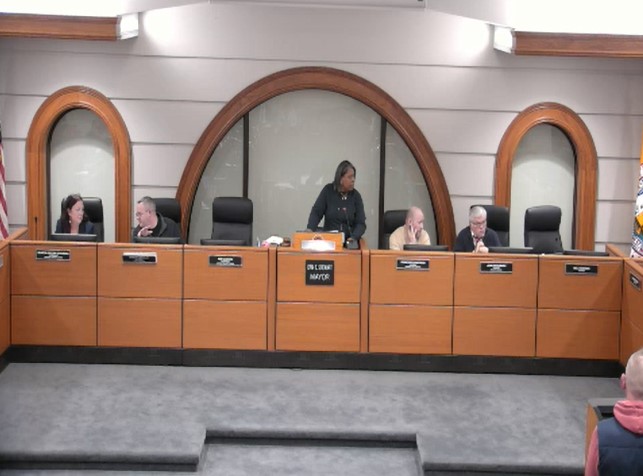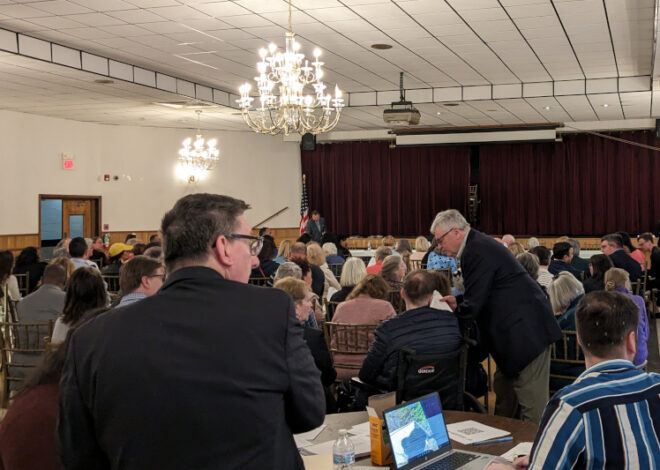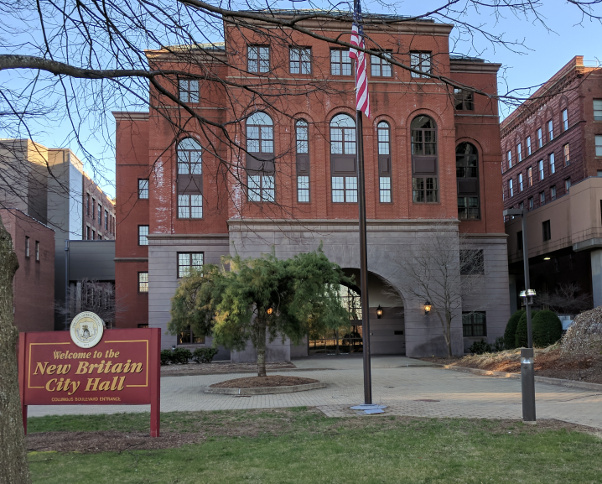
In Party Line Votes, Council Committee Sends Proposals Reducing Homeless Fines and Restrictions Back to Full Council
On party-line votes Thursday evening, a New Britain City Council committee referred back to the full Council two proposals to change city ordinances that have been criticized for having onerous impacts on the homeless in the city.
The proposals, on loitering and panhandling ordinances that its critics say criminalize being homeless, were introduced by the New Britain City Council’s Democratic majority members in February.
Homelessness, together with the high cost of housing, have been growing concerns, with rent and housing costs becoming unaffordable for many people.
One of the proposals being considered would create a new clarifying exception to the city’s prohibition on loitering. The change would say that,
Nothing in this article shall be construed to prohibit individuals to sit, stand, eat, consume non-alcoholic beverages, sleep, converse, pray and/or read in public places, parks and sidewalks.
Concerns have been expressed that the city has used the rules against loitering in a way that has the effect of pushing homeless residents from public parks, such as New Britain’s downtown Central Park.
Another proposal would reduce the fine for violations of the city’s general prohibition on panhandling. Present ordinances place $99 fine for panhandling. The proposal would change this to, $10 for a first offense, $15 for a second and $20 for additional offenses.
Business owners and their representatives, speaking in the public hearing on the proposals, said they opposed the changes. The business owners talked about negative effects on their businesses, customers and employees of homeless people sleeping in front of their businesses and panhandling their customers.
Business owners expanded upon their concerns about loitering and panhandling to larger concerns about public urination, threating behavior and vandalism, with a number of business owners saying the real action needed is public officials doing more to address the human problems leading people to be unhoused.
But Republican Council members defended current city programs directed at addressing homelessness, bringing the city Police Department’s “navigators” team before the Committee to discuss their work. The navigators team discussed their approach to the homeless as focused on communication and connection with human services. But Republican Council members held that the loitering restrictions and fines should be kept as important “tools”.
Democratic Council members, however, alluded to the contradiction between city’s officials’ glowing appraisal of the city’s programs to address homelessness and the imperative expressed by businesses that more needs to be done to address the human needs. Democrats pointed a problem of resources, noting that only three navigators must mean a large caseload for them.
Ward 2 Ald. Lori McAdam (D-2) said she is sympathetic to the concerns of business owners, but said that the proposals to reduce the reach of loitering rules would not stop the police from being able to have homeless move. Instead, she said, the restrictions on the homeless are counterproductive, cost taxpayers money and likely make it harder for people to escape homelessness.
Ald. McAdam also said that the city’s harsh rules on the homeless put the city at risk of losing federal HUD money that would otherwise be available to help the people of the city, generally, and could even be unconstitutional.
The two proposals were referred back to full Council on party-line votes, with Democrats in favor and Republicans opposed. Some Council members suggested that the proposals may be referred by the Council for further consideration and refinement in another of its committees.



